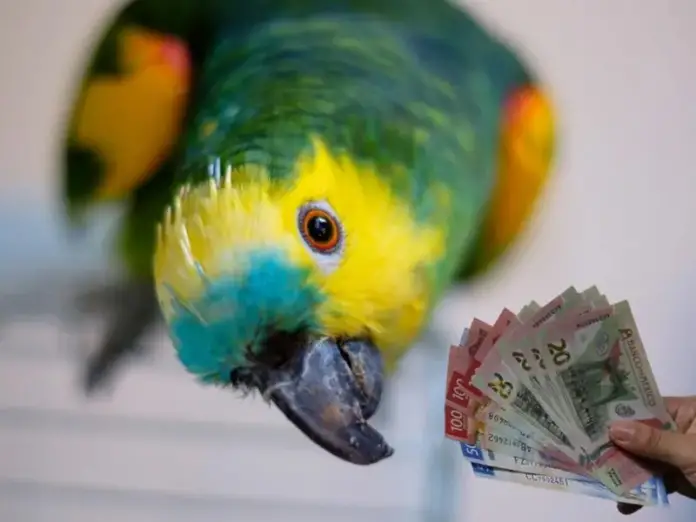It’s common in many homes to have a pet parrot. However, what may seem harmless to some people can become an environmental crime if the bird was acquired illegally. We tell you what the fine is for having a parrot in your home in Mexico in 2025.
Recently, the Federal Attorney for Environmental Protection (Profepa) strengthened its surveillance against the trafficking of wild birds, especially species such as parrots, parakeets, and macaws.
What does the law say about keeping parrots in your home?
Since 2008, the General Wildlife Law expressly prohibits the capture, sale, and possession of psittacines, including parrots, parakeets, and macaws, from wildlife within the country. “The extractive exploitation of psittacine species distributed within the national territory for subsistence or commercial purposes is prohibited,” states Article 60 Bis 2 of the General Wildlife Law.
This means that purchasing a parrot, parakeet, or macaw in markets, on social media, or through street vendors is illegal, even if they claim the bird is legally registered.
Most of these birds come from illegal trafficking, and keeping them at home without the corresponding official documentation constitutes a federal crime.
When is it legal to keep a psittacine bird?
The only way permitted by law to keep a parrot or parakeet at home is to ensure that it has been bred in captivity under a program sanctioned by Semarnat (National Wildlife Service). Additionally, it must be accompanied by:
An invoice or bill of sale issued by an Environmental Management Unit (UMA) or PIMVS (National Wildlife Service).
A closed ring or microchip for identification.
A registration with Profepa (National Wildlife Service) or Semarnat (National Wildlife Service). The lack of these documents makes owning the bird illegal, exposing both the buyer and the seller to possible criminal penalties.
If the bird does not have this documentation, its possession is considered illegal, and both the buyer and the seller may be criminally punished.
What are the penalties for owning a protected bird?
According to Article 420 of the Federal Penal Code, possessing, transporting, or trading protected species without the corresponding legal documentation constitutes an environmental crime.
The consequences include prison sentences of one to nine years, which may be aggravated in the case of a repeat offense or if more than one species is affected.
In addition, fines of between 300 and 3,000 days of minimum wage are contemplated, which by 2025 could represent more than 600,000 pesos, depending on the case.
These fines apply even if the person hasn’t captured the bird, as simply possessing it without legal permits is enough for Profepa to confiscate the bird and initiate criminal proceedings.
How do you know if a parrot is legal?
The only legal way to own one of these birds is if it comes from Semarnat-certified breeders and has:
Documentation of legal origin, such as an Environmental Management Unit (UMA) invoice
Closed ring or identification microchip
Registration with Profepa or Semarnat
If the seller can’t provide these documents, they are committing a crime, and so are you if you buy the bird.
What to do if you already have a parrot or parakeet at home
If you acquired a parrot or parakeet without knowing that its purchase was illegal, there are measures you can take to prevent possible fines, such as:
Don’t sell or give it away; this increases your liability. Contact Profepa to report it and evaluate options for regularization or voluntary surrender.
Avoid posting it on social media, as you could be reported.
NOM-059-SEMARNAT-2010 includes the complete list of protected species in Mexico. Authorities recommend consulting this regulation before acquiring any wild bird or animal.
Profepa’s 2025 campaign maintains a strong message: “Don’t buy, don’t sell, don’t lock up.”
:quality(75)//media/inside-the-note/pictures/2025/03/28/multa-tener-perico-mexico-2025-profepa.jpg)
Source: excelsior




